"I’ve accepted and grieved the things I cannot do and focus on the things I can do. It’s so important to take things one day or even one hour at a time." 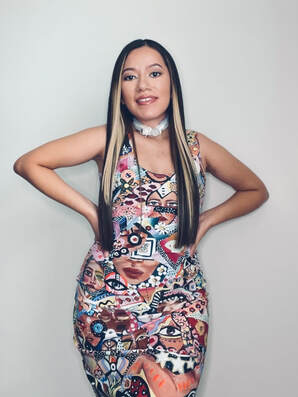 Hola. I’m Stephanie Chicas, I am 28 years old, an art/wine/dance fitness/and taco lover with a disability and chronic illness. At age 13, I was diagnosed with Congenital Muscular Dystrophy (SEPN1 mutation). I use assisted ventilation via tracheostomy while I sleep and sometimes during the day. I went 13 years experiencing shortness of breath, migraines, muscle pain, weight loss, and falls with no diagnosis. It wasn’t until I woke up one morning with vertigo and extreme shortness of breath that I underwent various tests and follow up by doctors. My life completely changed after that morning. I was hospitalized for two months with what we thought would be one week of recovering from pneumonia. Within that first month of being hospitalized, I was heavily sedated and intubated and could not regain the strength to breathe on my own. Three weeks into my hospital admission, a tracheotomy was performed, and this is when my journey with a trach and ventilator began. Before the tracheotomy surgery, I had no knowledge of a trach or mechanical ventilators. The child life specialists were the ones to educate and help me feel comfortable with the operation, care, and medical equipment. I remember being shown a picture of Catherine Zeta-Jones who had a trach and having a doll made for me with the IV’s, NG tube, and trach tube. The way the child life specialist addressed my concerns and normalized my experience helped me cope with this new experience. And while it took me years to learn and perform my own respiratory care, it feels empowering to do so. So now, I change my own trach, suction myself, administer treatments, change the ventilator’s tubing, and have even managed to wean myself off the ventilator. I went from 24/7 ventilator use to now needing it to sleep or when fatigued. While the doctor said I’d be ventilated 24/7 for the rest of my life, I chose the path that was right for me. The sudden onset of illness, tests, and surgeries was traumatizing. If it wasn’t for my support system and child life specialists, I would not have been able to have the motivation and resilience to face everything. My life has been impacted in many ways. There’s good and there’s bad. Both valid and true. Accepting the diagnosis and how it has affected me has helped me cope on this roller coaster of a journey. On the physical side, my body has always been fighting with Muscular Dystrophy (MD), but it wasn’t until I was nearly 13 that on-going testing was done. It took a medical trauma for me to get the help I had deserved all along. We can imagine what 13 years of symptoms and gaslighting can do to someone. For me, it has caused anxiety. Along with anxiety though, there’s also the confidence. And I don’t say this to disregard the emotional toll MD has had on me but to accept both truths. Because while I do become anxious in social settings where I think of accessibility, energy consumption, germ exposure, what symptoms will come and if they’ll be manageable, I have also gained a lot of confidence from this. My confidence has gradually grown over the years and felt more ingrained within me when I felt comfortable learning about and sharing my disability and chronic illness. My ability to speak up, have courage, and be more authentic has increased a lot since diagnosis. We all have our struggles and our own capacity to handle certain experiences. Dealing with a disability and chronic illness is anything but easy. Being disabled and chronically ill for me feels like being a 24/7 nurse, receptionist, counselor, social worker, and care manager. Over the past fifteen years, I’ve gained knowledge in medicine, organizing, managing nursing schedules, knowing how to work with health insurance, etc. It all can get overwhelming, but with therapy, hobbies, and my support system, the journey of being disabled and chronically ill feels easier. It took me 10 years to finish my associate’s degree, but I did it. I have difficulty doing dance fitness, but I do it when/how I can. Volunteering to foster animals and attending charity events was tiring at times, and yet again I did it. Being vulnerable and sharing my journey is honestly still uncomfortable at times, but I still do it. All these things I do, with moderation, because it’s what brings me joy and growth. I’ve accepted and grieved the things I cannot do and focus on the things I can do. It’s so important to take things one day or even one hour at a time. Disability and chronic illness look different on everyone, and we all unfortunately do not have equal access to the care we deserve. I carefully decide what I can handle, face setbacks, and have had to fight for my care. So, my advice to someone living with an Neuromuscular Disease (NMD) is to go at your own pace and continue your fight. “The most beautiful people we have known are those who have known defeat, known suffering, known struggle, known loss, and have found their way out of the depths. These persons have an appreciation, a sensitivity, and an understanding of life that fills them with compassion, gentleness, and a deep loving concern. Beautiful people do not just happen.” --- Elizabeth Kubler-Ross Editor's Note:
So, what is your story? Start the process of telling us at https://breathewithmd.org/storyform.html or send an email to [email protected]. Comments are closed.
|
AboutLiving Ventilated celebrates those in the NMD community who use assisted ventilation. Archives
August 2024
Categories |
Breathe with MD, Inc. is a U.S. registered 501(c)(3) nonprofit organization. Donations are tax deductible to the extent allowable by law.
Note: This website should not be used as a substitute for medical care. For medical care or advice, please seek the care of a clinician who specializes in the breathing issues of those with Neuromuscular Disease (NMD).
Web Hosting by Hostgator
Note: This website should not be used as a substitute for medical care. For medical care or advice, please seek the care of a clinician who specializes in the breathing issues of those with Neuromuscular Disease (NMD).
Web Hosting by Hostgator
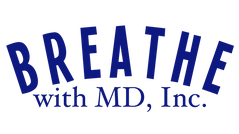
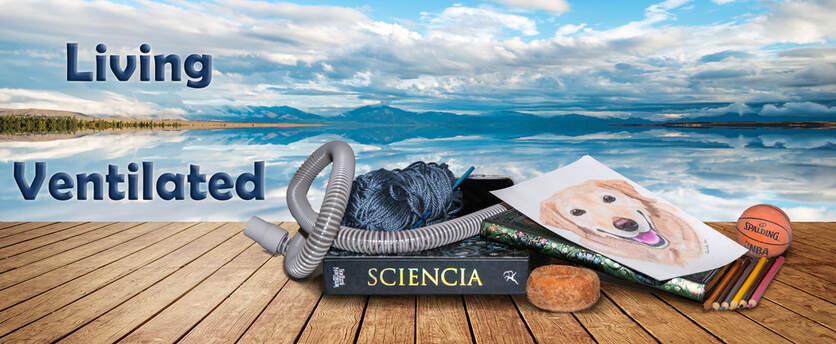
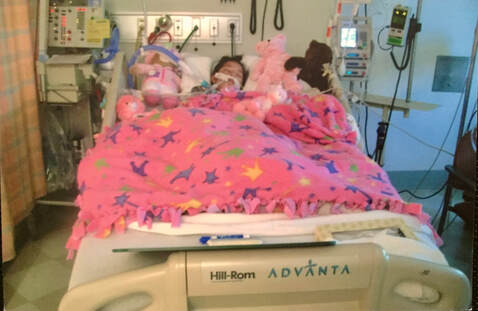
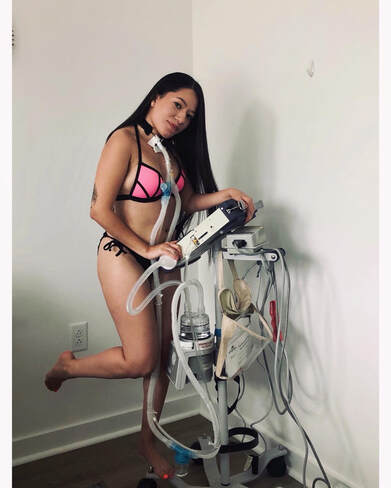
 RSS Feed
RSS Feed